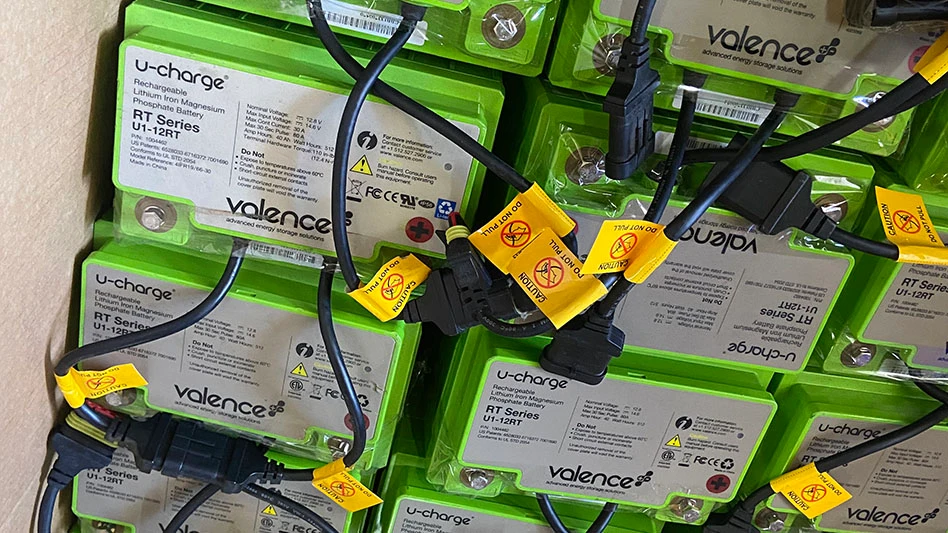
Recycling Today archives
The U.S. Department of Energy (DOE) has announced the availability of $192 million in new funding to go toward recycling batteries from household consumer products.
The DOE also is launching an advanced battery research and development (R&D) consortium and the continuation of its Lithium-Ion Battery Recycling Prize, which began in 2019.
“With the demand for electric vehicles (EVs) and stationary energy storage projected to increase the lithium battery market by as much as 10-fold by 2030, it is essential to invest in sustainable, reduced-cost recycling of consumer batteries in support of a secure, resilient, and circular domestic supply chain for critical materials,” the agency states.
The DOE says the funding ties into nearly $3 billion announced to date related to the 2021 federal infrastructure funding law, which included allocations for EV and battery technologies.
“The United States is leading the way in developing advanced battery technologies that will power our clean energy future and boost our global competitiveness,” U.S. Secretary of Energy Jennifer M. Granholm says. “Thanks to President Biden’s Investing in America agenda, these investments in battery production and recycling will ensure the U.S. has a secure and sustainable domestic supply chain and strengthens our economy.”
As of April, more than 3.6 million plug-in EVs have been sold in America, according to the DOE, which says more than half of those have been sold since Biden took office. Battery costs have fallen more than 90 percent since 2008 and energy density and performance have increased rapidly.
The DOE says its $125 million Consumer Electronics Battery Recycling, Reprocessing and Battery Collection funding opportunity is an essential part of the $7 billion authorized by the Bipartisan Infrastructure Law to grow and secure the battery supply chain in the U.S.
Topic areas that can be funded include efforts to: develop and implement education and/or behavior change campaigns to increase participation by consumers in existing battery recycling programs; improve the economics of recycling consumer electronics batteries to spur greater market demand for battery recycling; assist states and local governments in establishing or enhancing battery collection, recycling and reprocessing programs; and help retailers implement programs to collect, sort, store and transport consumer electronics batteries.
The funding will be administered by DOE’s Vehicle Technologies Office and Office of Manufacturing and Energy Supply Chains. More information on the application process can be found here.
The Advanced Battery R&D Consortium funding opportunity will provide up to $60 million to bring together EV manufacturers, universities, national laboratories, mineral and material suppliers and other battery stakeholders to advance battery R&D that is relevant and responsive to the needs of EV manufacturers.
The Lithium-Ion Battery Recycling Prize has awarded $5.5 million to date. “In recognition of its ongoing importance in informing larger battery recycling efforts, DOE is announcing $7.4 million to fund a new Breakthrough Contest, as well as Phase IV of the [original] Prize," it adds.
Latest from Recycling Today
- Lautenbach Recycling names business development manager
- Sebright Products partners with German waste management equipment company
- WasteExpo transitions to biennial format for enhanced experiences
- Study highlights progress, challenges in meeting PCR goals for packaging
- Washington legislature passes EPR bill
- PureCycle makes progress on use of PureFive resin in film trials
- New copper alloy achieves unprecedented high-temperature performance
- Gränges boosts profits and sales volume in Q1 2025





